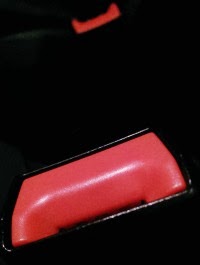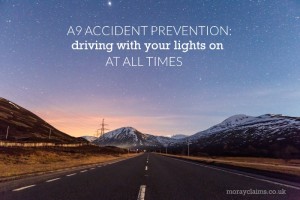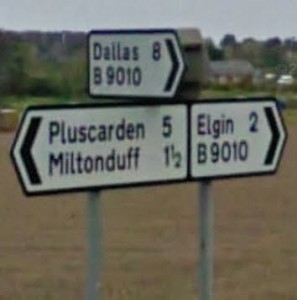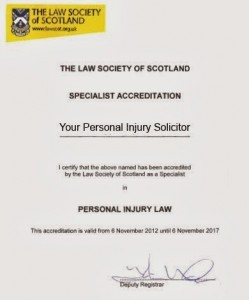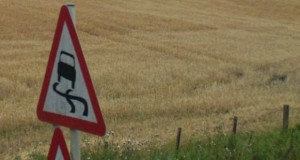Click Clack, Front ‘n’ Back. Though there are other famous public information campaigns dating from the 1970s, seatbelt laws did not come into force in the UK until 1983. Regulations for children to wear seatbelts followed in 1989 and then for seatbelts in the rear seats in 1991. It took a while for many people to wear seatbelts regularly but now it has become the accepted norm for anyone getting into a motor vehicle. Most car manufacturers install alarm systems to alert the occupants when a seatbelt is not engaged and the vehicle is in motion. In spite of the rules, there are still some people who will not willingly wear a seatbelt and there are in fact exemptions for certain people. You will still have a claim but your compensation will be reduced If you are unfortunate enough to have suffered injury in an accident whilst not wearing your seatbelt, you will probably still be able to make a claim for personal injury. The down side is that there may Continue Reading
A9 Accident Prevention: Driving With The Lights On
It’s good to see Del Amitri back on the road again for the first time in 12 years. Their set list includes the song “Driving with the brakes on” – not about a stationary vehicle but instead another complicated Justin Currie relationship scenario. Driving with the lights on is clearly a good idea at certain times of day or if conditions are poor. In this post, I’m making a more general road safety point - which is to suggest you consider driving with your lights on during the hours of daylight, at least on certain roads. Scotland’s "most dangerous" roads Scotland has few motorways and none north of Perth. At the top end of the country, trunk roads are the arterial routes. Many of these have only a single carriageway in each direction but some have sections with dual carriageway or “overtaking lanes”. Roads such as the A96, A82 and, especially, A9 (Scotland's longest trunk road), have gained a reputation for frequent accidents. Between 2006 and 2010, the A9 claimed more lives Continue Reading
Fatal Accidents: Another Reason To Make A Will
Something like 7 out of 10 people do not have a Will. There are lots of reasons why you are unlikely to have made a Will. This post tells a story which might convince you to take action and make a Will, if you do not have one. The details are fictional but are based on fact situations we have dealt with in practice. Maggie and Tam – cohabiting couple Maggie had been separated from her husband for several years when she met her partner, Tam, through a mutual friend in 2002. Maggie lived in Moray and Tam was based in the Borders. After a year or so, they decided to move in together, Tam finding a job with a haulage company in Moray. They bought a house using, as a deposit, money Tam had saved. Tam had never been married and had no children. He formed a great relationship with Maggie’s three children – and two grandchildren born during the years after he and Maggie got together. Maggie, in turn, enjoyed the company of Tam’s brother and his parents. They went on Continue Reading
When Do You Need A Personal Injury Solicitor In Scotland (rather than elsewhere in the UK)?
Accidents do not take any notice of national boundaries. An accident can happen whether you are in Dallas, Moray, or Dallas, Texas. If you have been injured in an accident and need to make a claim for compensation, we recommend that you contact a solicitor with proven specialist knowledge in personal injury claims. We also suggest that you should deal with a solicitor who is local to you, if possible. For accidents which have happened in Scotland, does it matter whether your solicitor is in Scotland? It does matter and we will explain why. When a local-to-you solicitor can be a bad idea Where you suffer injury in a road traffic accident in Scotland, you might be on holiday or on business at the time. You may have your home in another part of the UK. It can be tempting in that situation to consult a solicitor close to where you live, once you are sufficiently recovered, because it is the most convenient option. The solicitor you consult will be reluctant to Continue Reading
How To Choose a Personal Injury Solicitor in Scotland
In another article, we saw how proven specialist knowledge in a particular area of law is probably the most important factor when you are looking to get help from a solicitor - assuming you do not already have a solicitor or a good recommendation from a close friend or relative. In this article, we discuss how best to go about choosing a personal injury solicitor in Scotland. How to establish a solicitor's 'proven specialist knowledge' in relation to personal injury claims If you have been injured in an accident and need to make a personal injury claim in Scotland, how do you go about finding a solicitor with the necessary specialist knowledge? Lots of solicitors' firms - and others who are not solicitors - claim to have the necessary experience and expertise to handle your compensation claim, so what you need is an independent benchmark of excellence to give you confidence that you are trusting your claim to a safe pair of hands. Law Society of Scotland specialist Continue Reading
Snow and Ice: Pedestrian Slipping Accidents
We have recently looked at claims for injuries to drivers caused by vehicle slipping accidents in wintry conditions and now it’s time to look at claims by pedestrians in similar circumstances. Slips on premises - reasonable scope for a claim If you slipped on premises where the owner or occupier is responsible for keeping the property free from snow and ice, you may have a claim against them under the Occupiers’ Liability (Scotland) Act 1960. Slips while you are working - reasonable scope for a claim Slips due to snow and ice while at work may be covered by health and safety regulations, though you need to note the uncertainty arising from the changes brought about by the Enterprise and Regulatory Reform Act 2013. There may be reasonable prospects of a successful claim even if the accident did not occur on property belonging to your employer. Slips in the street - or "public liability" slips - poor chances of success The most common scenario, however, is where you have been out Continue Reading
Snow and Ice: Single Vehicle Accidents
We are back to that time of year when the roads in Moray and the North of Scotland are regularly icy or snow-covered. In this blog, we are looking at the chances of making a claim for personal injury where, due to the road conditions, you lose control of your vehicle on ice or snow and have an accident. The fact is these are very difficult claims to make successfully, if you were the driver of the vehicle. Difficulties for drivers in claiming successfully … As you will see from what follows, under Scots Law the relevant highway authority will virtually never be to blame for an accident caused by a vehicle skidding on ice or snow. This puts the onus very much on you as the driver to take great care when driving in such conditions – and even to think carefully about whether you should make your journey at all. … Though not for passengers If you are a passenger in a single vehicle accident of that type, you will almost certainly have a claim against the insurers of the driver Continue Reading
Helicopter Accident At Work Scenario Shows Up Inconsistencies In The Law
At the moment, we do not know the probable cause of the tragic helicopter accident in Glasgow on the evening of 29 November 2013, so the following discussion is hypothetical. It also concentrates exclusively on the application of the law to the occupants of a helicopter in similar circumstances (i.e. all persons “at work” at the time) and their relatives. In delivering an online update webinar to members of the Association of Personal Injury Lawyers (APIL) on 09 December 2013, APIL Chief Executive, Deborah Evans, has highlighted how one possible scenario for the accident could provide an example of the changes brought about by the Enterprise Act with effect from 01 October 2013. These changes affect employees’ ability to make claims for personal injury damages against their employers arising out of accidents at work and also the rights of employees’ families to claim compensation for the death of their relative in the course of their employment We have blogged about the effect of the Continue Reading
Whiplash Injuries: How They Happen
The subject of whiplash injuries continues to appear regularly in the news and in this post we're looking at the mechanism of the typical whiplash injury. The medical difficulty which exists in proving the existence and extent of these injuries means there’s always going to be doubters shouting (sarcastically) “Git ower it!” at people who claim compensation for whiplash. The Westminster Government say they are going after the “whiplash fraudsters” who invent or at least exaggerate their injuries following road traffic accidents. On the other hand, if you’ve ever suffered a whiplash injury yourself you will know what a miserable experience it can be, interfering with all areas of daily life. During Road Safety Week (18-24 November 2013), the Association of Personal Injury Lawyers (APIL) has been encouraging prevention of whiplash injuries by motorists avoiding the dangerous practice of tailgating the vehicle in front. The classic whiplash accident scenario The classic Continue Reading
Accident Claims: Choose Your Solicitor (rather than having one forced upon you)
We are often contacted in situations where you, as the injured person, have been in touch with your insurers following an accident and they have recommended particular solicitors to you to deal with your claim. Situations where insurers recommend particular solicitors The types of insurance scenarios here include cover under motor insurance, house insurance and legal expenses insurance. It seems to be regularly the case that you will be left with the feeling from your discussion with your insurer that you have “no choice” but to go along with what they suggest. The solicitor is effectively appointed for you. They will probably not be local to you. You can choose your solicitor In truth, you do have a choice. First of all, you need to understand that many insurers have commercial relationships with the solicitors they recommend or appoint. The firms in question are often large and will delegate the bulk of the work on your case to non-solicitors. Secondly, as a Continue Reading
Moray Library Closures, Judicial Review and Legal Costs
In the wake of the Press Call in Elgin on 11 November 2013 which announced Vivien Hendry as the Moray resident who seeks to challenge the validity of Moray Council’s decision to close 7 out of 15 public libraries in the area, questions have been asked about the legal costs which might be involved (see the comments below the Northern Scot article here). Peter Brash of Grigor & Young is Ms Hendry’s solicitor. Getting counsel’s opinion on the prospects of success The first contact was when a group of people from “Save Our Libraries (Moray)” got in touch with Grigor & Young, seeking legal advice about the proposed closures. It was apparent that any challenge would have to be by way of Judicial Review - which is not an area of law that comes up often for most solicitors in private practice. Judicial Review proceedings can only be raised in the Court of Session, the highest civil court in Scotland. The Court of Session sits only in Edinburgh. The way forward was Continue Reading
12 Taxi Safety Precautions for a Happy Night Out
Late one November night in 2003, 20-year-old Stephanie Hammill was with her fiancé when they flagged down what proved to be an unlicensed cab in Wakefield, West Yorkshire. She got in first and the car sped off before her fiancé could join her. Clearly terrified of being attacked or abducted, she jumped from the moving cab and was struck and fatally injured by another car. This tragic case highlights the "deadly danger" of bogus cabs. The Scale of the Unlicensed Taxi Problem in Cities The website Taxiregister.com refers to startling statistics from London that:- about 10 women are attacked each month after taking an unlicensed minicab; and 80% of “stranger” rapes are committed by unlicensed cab drivers. Unlicensed Taxis in Moray In a rural area, it is easy to be oblivious to the dangers posed by bogus cabs. In July 2013, the Moray Council gave out a warning about unlicensed taxis operating in Buckie. In Moray, a licensed taxi can be identified by the Continue Reading
